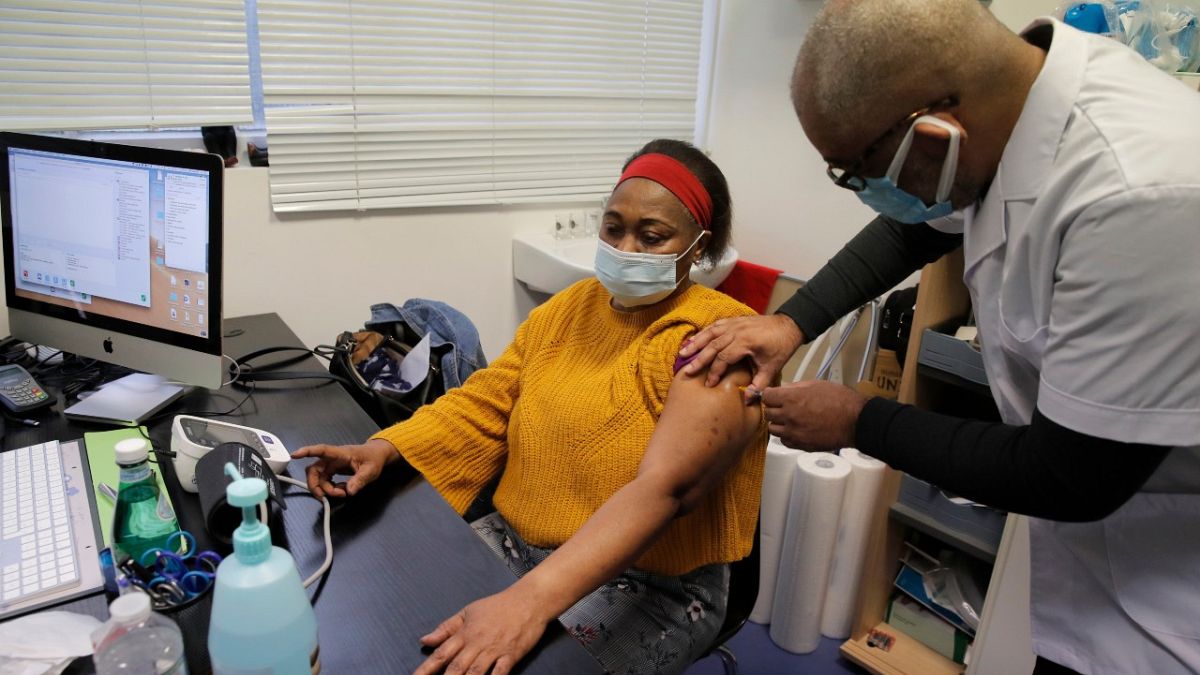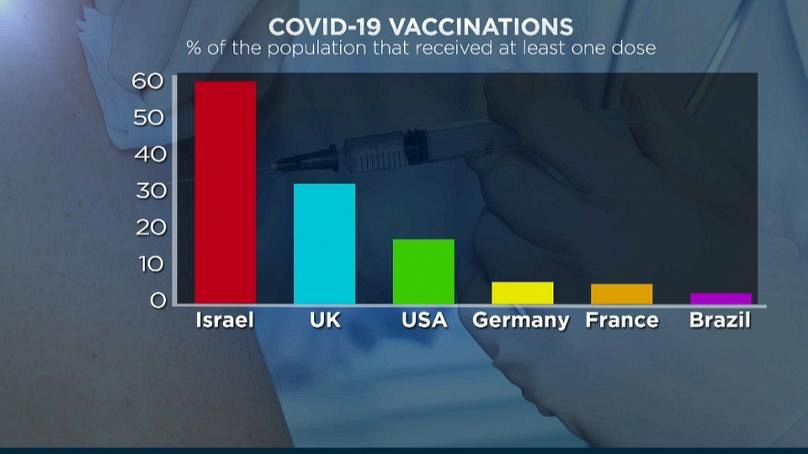The Paris-based group warns that sluggish vaccine rollouts in Europe could see the economic recovery lag behind the likes of Israel, the US and the UK.
Governments should speed up coronavirus vaccination programmes to boost the economy — that's the call from the OECD as it gave a relatively upbeat assessment of the global recovery from the COVID-19 pandemic.
But the intergovernmental economic group's revised growth forecasts come tinged with a warning to Europe that sluggish vaccine rollouts threaten to hold the economy back.
In Tuesday's report, the OECD (Organisation for Economic Co-operation and Development) forecasts global growth of 5.6% for 2021, a rise of 1% compared to its estimate in December.
But for the eurozone the anticipated increase in growth is markedly less: just 3.9% (compared to a December estimate of 3.6%) after a fall of 6.8% in Europe's GDP in 2020.
'Best economic policy is to vaccinate'
Compared to before the pandemic, nearly 10 million more people across the OECD's 36 mostly rich-country member states are now unemployed.
Laurence Boone, the Paris-based group's Chief Economist, says the economic recovery will be linked to the speed with which countries inoculate their populations.
"The best economic policy today is to vaccinate more, and more quickly. If we are at war against the virus, we have to give ourselves wartime resources to produce and distribute the vaccine," she told Euronews.
"What we're seeing is that when we're in a country like Israel that has vaccinated a great deal, restrictions to movement have been lifted and economic activity is in the process of taking off at lightning speed. We see that with the United States, with the United Kingdom," she went on.
As of March 8, at least one vaccine dose had been given to nearly 58% of the population in Israel, 18% in the US, and 33% in the UK compared to just over 6% in Germany and under 6% in France — although the latter countries have been reserving supplies for second jabs.
Europe 'must move to vaccine war footing'
The OECD warns that new virus variants and sluggish vaccine rollouts could threaten chances of improvement for businesses and jobs.
"In Europe, we are late. Not only are we not producing enough, but on top of that, even with the doses we have in Europe, we're not using them. We must absolutely move up to a war footing," Laurence Boone told Euronews.
Deliveries to the European Union of COVID-19 vaccines should accelerate to 100 million doses per month from April, EU Commission President Ursula von der Leyen said on Monday.
The Commission — which coordinated the EU's vaccination strategy, striking deals with pharmaceutical companies to supply the 27 member states — has been strongly criticised for the slow vaccine rollout. This was compounded in early January by both Pfizer/BioNTech and AstraZeneca/Oxford University announcing delays.
But individual countries have also been accused of being slow to get doses out of boxes and fridges and into people's arms.
In France, where the OECD is based, the government stresses the vaccine rollout has finally been speeding up. But there is evidence that many doses received have not been used. Of 1.6 million AstraZeneca doses received by the end of February, only 275,000 had been injected.
Italy announced plans to boost supplies on Tuesday, by producing the Sputnik V vaccine from July. This will make it the first EU country to make the Russian vaccine, which is still under review by the European Medicines Agency (EMA).
Need to vaccinate in poorer countries
But in Brazil and Russia the share of the population to have been given at least one jab falls below 5%, while many poorer countries barely register on the scale with rates still well below 1%.
"If we don't vaccinate in emerging countries or those with low incomes, the virus will continue to circulate, we'll have borders closed and activities linked to tourism, leisure or work will still not be functioning," the OECD's Laurence Boone said.
Since the pandemic struck, "substantial job losses have increased poverty and deprivation of millions of workers," the economic group's report says.
“The top policy priority is to ensure that all resources necessary are used to produce and fully deploy vaccinations as quickly as possible throughout the world, to save lives, preserve incomes and limit the adverse impact of containment measures on well-being,” it adds.

